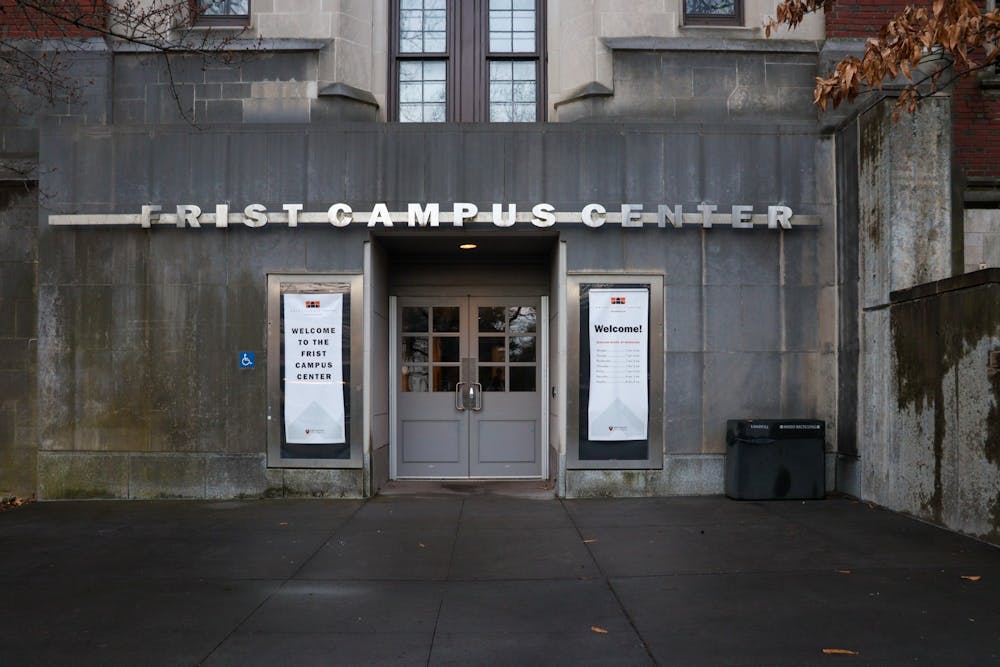As Princeton students finish their last midterms before fall break, the Honor Code pledge is becoming second nature to many. Princeton’s Honor Code binds students to a set of academic integrity intended to be upheld by the student body. The Honor Code has been praised by some as a way to promote dignity and integrity, while its disciplinary process has been criticized by some as a mentally taxing and unfair.
How many students have dealt with the Honor Committee and Committee on Discipline, the two administrative bodies that govern academic violations and investigate and prosecute possible violations, in the last year? The Daily Princetonian looked at the statistics released by the two committees to see offenses students have been accused of for the most recent year with an available report and how many of these cases result in a student being found responsible. The statistics demonstrate again that the bulk of cases fall on the Committee on Discipline, whose case load is staggeringly high compared to the Honor Committee.
The Honor Committee is made up of 15 students, and decides on appropriate consequence after it issues a finding of responsibility – anything from a reprimand to an expulsion. Consequences can be appealed to the Office of the Dean of the College. Between fall 2017 and spring 2022, about 18 percent of cases referred to the Honor Committee resulted in a student facing punishment for their actions. A slightly smaller percentage of cases – 17 percent – progressed to a formal hearing, but did not result in a student being found responsible. This means that of the Honor Committee cases that had a hearing, just over half – about 52 percent – resulted in a punishment being handed down from the Committee.
The types of Honor Committee cases that had the highest percentage of students being held responsible were plagiarism and doctoring a regrade, though these categories only had one case each. Doctoring a regrade may mean changing a test that has been handed back and then returning it to ask for a regrade. Unauthorized use of materials had the next highest percentage of cases resulting in punishment, with 23 percent of reported cases leading to a student being found responsible of wrongdoing.
No students who were accused of removing an exam from a room, copying from a peer, or failing to submit an exam were found responsible by the Honor Committee for their alleged violations.
The most common type of Honor Code violation reported is the unauthorized use of materials, representing about 40 percent of all cases. More than half of the cases in this category did not specify the type of unauthorized material used, with almost a third of these resulting in punishments. Of the unauthorized materials specified by the Honor Committee, phones were the most common material used, with eight violations reported. Just two of these students were found responsible for unauthorized phone use during an exam.
Students have also been disciplined for breaking University policies outlined in the Rights, Rules and Responsibilities. These punishments are handed out by the Committee on Discipline, made of students and faculty. Since the Committee on Discipline has jurisdiction over a broad range of non-academic violation and any academic violation outside of an in-class exam, the number of cases are much higher by an order of magnitude.
In contrast to the more limited role of the Honor Committee, the Committee on Discipline has a much wider scope in terms of types of violations and caseload. 1,072 cases were referred to the Committee on Discipline in one year compared to just 76 for the Honor Committee over four.
The most common Committee on Discipline case type from the 2021-2022 school year was Health and Safety, representing almost 70 percent of the case total. Of these 742 cases, 730 resulted in students being held responsible. According to the disciplinary report, “the vast majority of the health and safety violations were regarding noncompliance with COVID and public health policies,” with reprimands coming after a warning. Of the 164 alcohol cases reported, 157 resulted in students found responsible for violating University rules, 109 of which came from a single, off-campus case.

While fewer than 20 percent of Honor Committee cases result in students being held responsible, over 95 percent of Committee on Discipline cases led to a findings of wrongdoing.
The Committee on Discipline has been criticized in the past for a more opaque decision-making process. In an interview with columnists for the ‘Prince,’ one anonymous member of the Committee said that certain other members lack “even a pretense of impartiality” during Committee hearings as demonstrated by “extremely leading questions.”
In a statement to the ‘Prince,’ Dean of Undergraduate Students Kathleen Deignan wrote that “the Committee is explicitly told not to ask leading questions and to refrain from drawing any conclusions until they have heard from all parties during the hearing. We have not witnessed any student member of the Committee being pressured to assume anything about the facts until all information has been considered.”
For academic violations, the number of findings of responsibility by the Committee on Discipline seems to have declined over time, from 82 in the 2020-2021 school year to 50 in the 2021-2022 school year.
The harshest discipline the Committee handed down in the past school year was a one-year suspension, which they gave as punishment for a second academic violation in both cases where it was applied.
Students can be represented by Peer Representatives in cases facing both the Honor Committee and the Committee on Discipline.
Charlie Roth is a head Data editor and senior News writer for the ‘Prince.’
Ryan Konarska is an associate Data editor and staff News writer for the ‘Prince.’
Please send corrections to corrections[at]dailyprincetonian.com.








